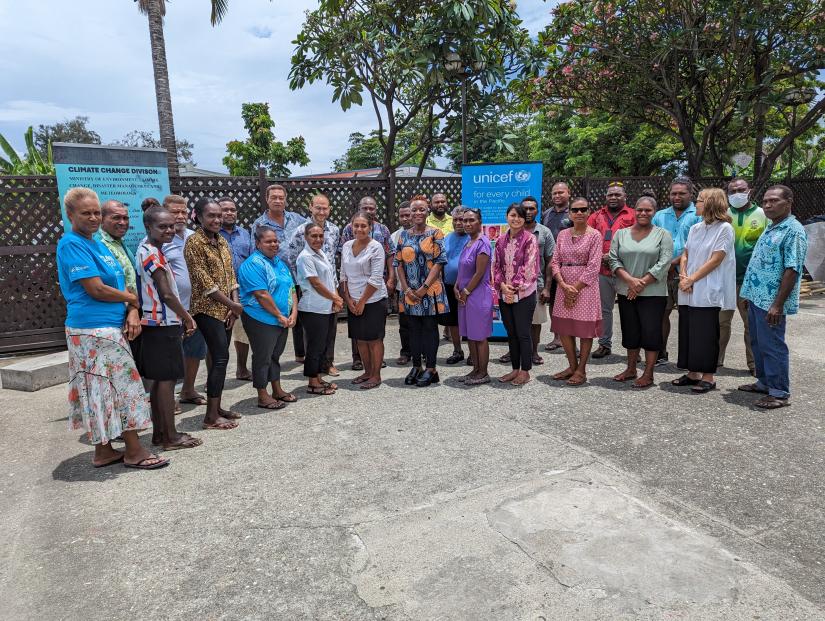ISF and UNICEF partner up for climate-resilient WASH in the Solomon Islands and Kiribati.

The Solomon Islands and Kiribati are two of the most at-risk countries to climate change impacts globally.
These island nations, nestled within the tropical beauty of Oceania, face the relentless onslaught of rising sea levels, extreme weather events, disappearing islands, and shifting climate patterns. As the impacts of climate change intensify, these island communities become more vulnerable to climate-related challenges.
To support our neighbours in the crucial work of readying themselves for the impacts of climate change, the Institute for Sustainable Futures (ISF) teams up with UNICEF for climate-resilient WASH (water, sanitation, and health) research in the Solomon Islands and Kiribati.
This partnership is centred on UNICEF's climate-resilient WASH strategy, which offers a comprehensive four-step framework for integrating climate adaptation and management into WASH initiatives and policies at both national and local levels.
Focusing primarily on the well-being of children and families, the project aims to empower island communities to understand, address, and secure funding for climate-resilient WASH solutions.
In a region where vulnerability to environmental shifts is acute, the joint efforts of ISF and UNICEF highlight the urgency and significance of preparing these communities for an uncertain future.
The project emphasises the importance of investing in innovative strategies to address the challenges posed by climate change. Key components of the study include desktop analysis, stakeholder mapping, climate risk assessment, analysis of adaptation and mitigation options, and workshops and developing a theory of change and action plan for a more resilient future.
ISF’s Research Director, Melita Grant, who is leading the Kiribati partnership for the project, explains that the work supports and builds on a range of ISF projects in the WASH and climate change arena. She says, “Our climate resilient WASH work with partners in the Solomon Islands and Kiribati builds on a strong basis of projects in the climate change and WASH space, as can be seen in our recent summary of projects related to this theme.”
In-country workshops convened by ISF researchers brought together WASH and climate specialists from across both countries. The workshops used a hands-on approach to planning mitigation strategies, equipping locals with the tools and knowledge necessary to navigate the complexities of climate change adaptation and resilience-building.
ISF Senior Research Consultant, David Rodgers, says “It was eye-opening to see the variety of contexts and how that plays into different climate impacts. The consultation highlighted that adaptation and mitigation needs to be contextualised, there is no cookie-cutter approach across the country.”
As the impacts of climate change continue to intensify, initiatives such as this underscore the importance of proactive and inclusive approaches to safeguarding vulnerable communities worldwide. Through this collaborative effort, ISF and UNICEF are poised to spearhead transformative change in the Solomon Islands and Kiribati, paving the way for a more climate-resilient and sustainable future for generations to come.

